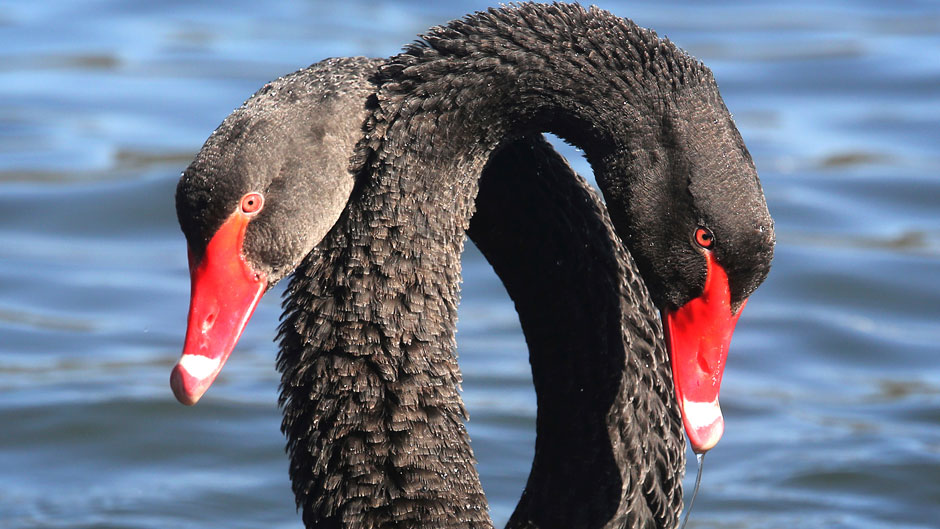A few weeks ago, many of us had not heard of the coronavirus. Then COVID-19 came swooping down, like a huge swan—a black swan—whose wings stretch across the globe. In seemingly no time, this novel virus has become ubiquitous and massively disruptive.
That’s exactly why it’s a black swan event—rare; with extreme impact, especially on the economic system; and, in retrospect, highly predictable.
Nassim Nicholas Taleb, a finance professor, writer, and Wall Street trader, popularized the notion of black swan events in his 2007 book, “The Black Swan: The Impact of the Highly Improbable.” His premises and insights seemed prescient at the time, coming just on the cusp of the 2008 financial crisis and are resonating again in the wake of the current upheaval.
David Kelly, professor of economics and academic director of the Master of Science in Sustainable Business Program at the University of Miami Patti and Allan Herbert Business School, published a paper on hurricane risk in 2018, which considered some of Taleb’s premises.
“To account for these rare events that seem to be occurring with increasing frequency, it makes sense to build resiliency into business strategies,” said Kelly.
“There’s a lot more risk in the economic system today, so companies have to behave differently and change their risk models to account for these possibilities,” said Kelly, who teaches a class on risk management and is an appointee to the provost’s resiliency task force.
Kelly explained that the “just-in-time inventory movement” utilizes global supply chains and has become commonplace in commerce during the past 30 years.
“This allows for goods to be produced quickly at low cost, but is highly vulnerable and not very resilient when in a case like the Apple fire in China [a 2016 fire at an Apple factory in Zhengzhou that was producing 70 percent of iPhones] when the whole production line shuts down.”
Courses in the Sustainable Business Program, he noted, emphasize resiliency and effective risk models to address climate change, sea-level rise, and a host of other complicated global issues.
“We do a lot of exercises to think of risks we haven’t thought of, consult with experts, and conduct surveys to look at unknown factors,” said Kelly, “but a lot of times it’s not so much, ‘did I see this disaster coming’—it’s more, ‘am I resilient to a range of business uncertainties.’ ”
Taleb’s black swan term references a phenomenon in the animal kingdom. For centuries most people, scientists included, believed that only white swans existed because they were the only ones sighted in the Western World. The discovery in 1697 of black swans in Australia changed scientific history and profoundly changed zoology. In retrospect, the existence of swans that were other than white seemed supremely logical.
“While the discovery is important to ornithologists,” wrote Taleb, “most importantly it illustrates a severe limitation to our learning from observations and experience, and the fragility of our knowledge.”
“Almost everything we know is fallible,” said Anjan Chakravartty, Appignani Foundation professor of philosophy in the College of Arts and Sciences. “We do the best we can to reason well with the evidence we have, but ultimately, even our strongest conclusions sometimes hold only under certain conditions. And often, we aren’t in a position to know the full extent of these conditions until we accidently bump into an exception to them.”
Taleb suggested, and Chakravartty concurred, that philosophers are particularly well-suited to tackle the challenges of uncertainty and improbability relating to knowledge.
“Philosophers are especially well placed to explain the nature and growth of knowledge, how it is acquired and safeguarded, and its limits and potential,” said Chakravartty. “In an age where, increasingly, various forces are attempting to undermine knowledge in the public domain in the service of their own social, political, or economic interests, it is incumbent on humanists and scientists alike to combat ignorance.
One of the defining characteristics of a black swan event is that it gives the impression, retrospectively, that we should have seen it coming. Should we have seen this current health crisis and economic collapse coming? Did we suffer from black swan blindness?
“No doubt there are cases in which we are lulled into a false sense of security: We’re so used to something working that we fail to think carefully about the precise conditions under which it will, and the possible conditions under which it will not,” said Chakravartty.
“By the same token, it’s unrealistic to think that we’re always in a position to see things coming,’’ he acknowledged. “There are always limits on our time, ingenuity, and resources—we can only do our best.”

